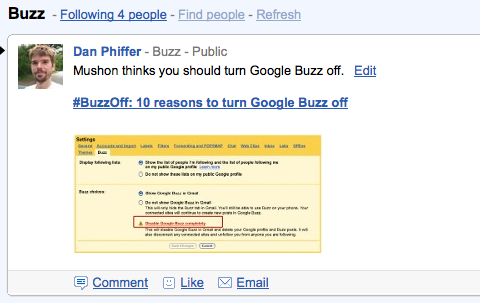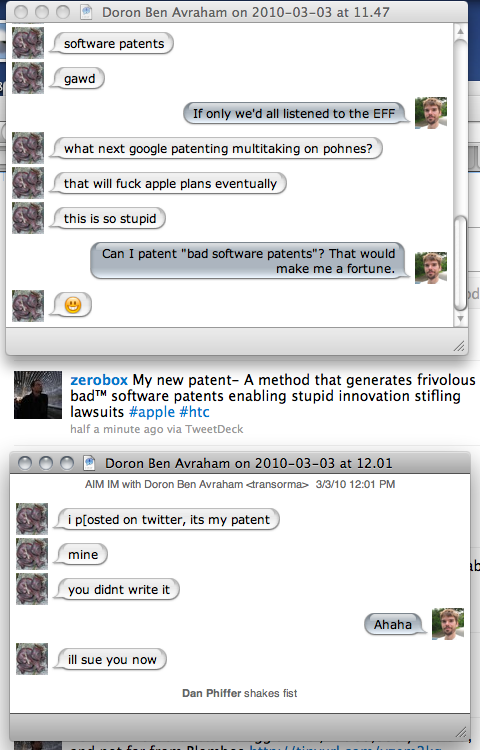Today I tweeted a snarky thing about Google’s featured snippets and then a bunch of people faved/retweeted it. I’m pretty sure this is the closest I’ve gotten to something “going viral.”
Self-driving cars: “utterly inevitable”
Mat Honan wrote about the experience of riding in Google’s cute self-driving cars.

The first time I rode in a fully autonomous car, what really impressed me was when the car saw something that I could not. As I rode down a residential street in Mountain View, the car slowed, for no apparent reason. Yet in the front seat, a laptop showed everything the car could “see.” And up ahead, there was a man, in the street, standing behind a double-parked vehicle. He was concealed from my eyes, but the car detected him. And it slowed down, anticipating that he might step out unexpectedly.
It anticipated this because each and every one of Google robot cars has experienced the totality of everything all its siblings have experienced. Google’s cars have driven a total of 1.2 million miles on the roads. We tend to think of this as combined experience — an aggregate number. But what it really means, effectively, is that every single car has driven that distance, has experienced it. This is a machine that learns. And in addition to that on road time, the cars log, Google said yesterday, 3 million miles every day running scenarios.
This car is a better driver than me, or you, or any of us.
A personal appeal from Mozilla
Most Firefox users don’t know how the company pays its bills. The majority of its income — about $100 million annually — is from Google, who pays Mozilla for using Google by default in the stock homepage and built-in search box. But the term of that deal just ended, and apparently nobody from either Mozilla or Google will confirm whether it has been renewed.
In response to this financial uncertainty, Mozilla have launched a campaign to shore up grassroots donations. Like Arment, I’m a bit saddened by the direction of Firefox. There have been too many meaningless releases with no sense of forward progress. But I’ve never been able to bring myself to switch to anything else. In large part because of its thriving plugin community, I haven’t found satisfactory replacements for Firebug or Greasemonkey in other browsers. So I’m sticking with team Mozilla.
Here are a couple videos about Mozilla’s origins that you should watch:
- Code Rush (1 hour documentary)
- The Mozilla Story (3 minute promo)
And then go donate!
Music Journalism is the New Piracy
This hits close to home since I’ve started posting about music here.
In cases like this, attacks on music blogs seem to be the latest example of the widening disconnect between the goals of the music industry’s promotional wing and its enforcement wing. Smart musicians and promoters understand that the Net is a powerful promotional tool, and know that sharing an artist’s music is the best way to earn new fans. The IFPI, on the other hand, writes clearly in its takedown notices that “Our top priority is to prevent the continued availability of the IFPI Represented Companies’ content on the internet.”
10 reasons to turn Google Buzz off
I’m going to stick around to see how Google Buzz develops, but Mushon does make some good points.

I couldn’t help but to post this link to Buzz as well.
Update: I changed my mind. Buzz is turned off.
Privacy and Google Buzz
Google is known for releasing new products before they are fully ready and then improving them over time. But its decision to do so with Buzz, coupled with its introduction to all 176 million Gmail users by default, appears to have backfired.
Link via Daring Fireball
